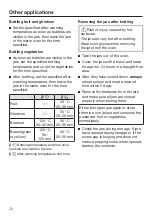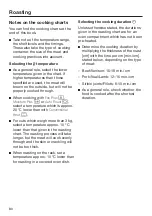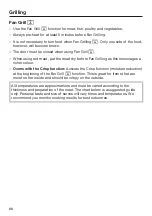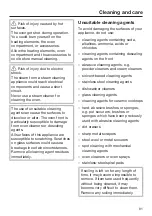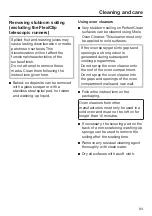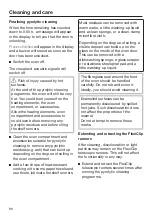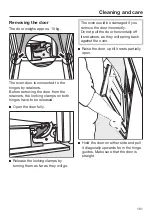
Grilling
86
Notes on the cooking charts
You can find the cooking charts at the
end of this book.
Take note of the temperature range,
the shelf levels and the timings.
These take the size of the meat and
cooking practices into account.
Check the food after the shortest
duration quoted.
Selecting the temperature
As a general rule, select the lower
temperature given in the chart. If
higher temperatures than those
specified are used, the meat will
brown on the outside, but will not be
properly cooked through.
Choosing a shelf level
Select the shelf level depending on
the thickness of the food to be
cooked.
Place flat food on shelf level 3 or 4.
Place thicker food on shelf level 1 or
2.
Selecting the cooking duration
Grill thinner cuts of meat/slices of fish
for approx. 6–8 minutes per side.
It is best to grill food of a similar
thickness at the same time so that
the cooking durations do not vary too
much.
As a general rule, check whether the
food is cooked after the shortest
duration.
To
test the food
, press down on the
meat with a spoon. This lets you
determine how well the meat has
been cooked.
–
Rare
If the meat gives easily to the
pressure of the spoon, it will still be
red on the inside.
–
Medium
If there is some resistance, the inside
will be pink.
–
Well-done
If there is great resistance, it is
cooked through.
Useful tip:
If the surface of a thicker cut
of meat is browned but the centre is still
raw, move the food to a lower level or
reduce the temperature and continue
grilling. This will stop the surface from
becoming excessively charred.

